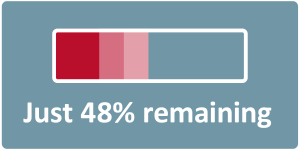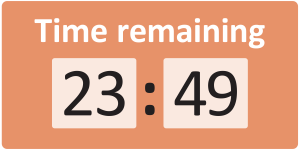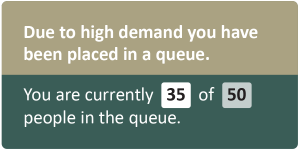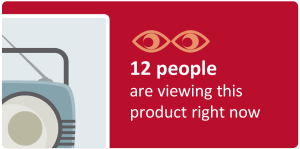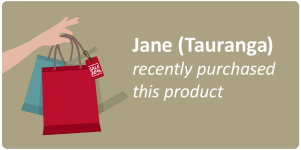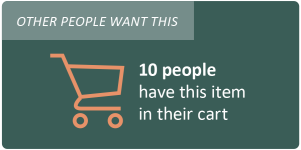Online sales practices
Avoid misleading claims when selling online. Give consumers accurate information about demand and available stock.
Consumers increasingly shop online and rely on claims businesses make on their website about goods and services. In many cases, consumers cannot establish for themselves if these claims are accurate.
Claims about the availability or popularity of goods or services can influence a consumer to make a purchase. As with all claims that businesses make, claims made online must be clear, accurate and unambiguous and businesses must be able to substantiate them – back them up.
Otherwise, businesses will be breaking the law.
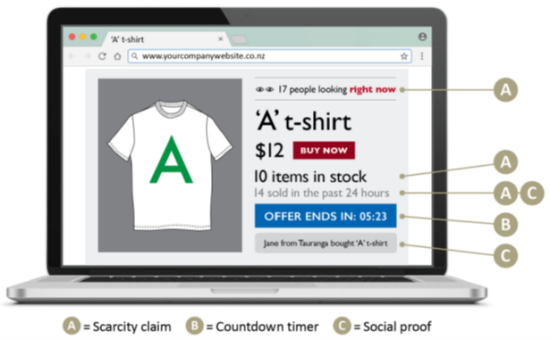
There are different types of claims made online that may influence consumers to purchase goods or services. These include:
- claims that may influence consumers to purchase quickly, out of a fear of missing out
- claims about popularity or previous sales made that make the good or service appear popular.
Claims that influence consumers to purchase quickly are known as scarcity claims or calls to action. These include statements that a sale is ‘limited’, the use of a countdown timer, stock level indicator, and an online queueing system that might hurry along consumers’ purchases.
Claims about popularity are known as social proof claims – this is where a good or service is represented as popular and in high demand, sometimes because it was recently purchased by another person.
Scarcity claims and calls to action
The use of scarcity claims like countdown timers, stock indicators and queues can give the impression that offers have limited availability – for example, how long the offer is available for, or how much product is left to purchase. Some consumers may believe they need to complete their purchase quickly to avoid missing out and may be discouraged from shopping around.
When scarcity claims are used, the information must be clear, accurate, unambiguous and able to be substantiated. Businesses making scarcity claims must be able to prove that their claims are accurate. If not, consumers could feel pressured into making a hurried purchase, when the same offer may continue to be available.
Below are a few examples of scarcity claims and when these will breach the Fair Trading Act.
Claim | Explanation |
| If you claim there are only five tickets left then you need to be clear this refers only to tickets on this website and not for the event in general, if tickets can be bought elsewhere. |
| If you claim there is low stock available, then this claim must be true. You must have a reasonable basis to prove that stock levels are low and the good may soon sell out. |
| If you claim that that there is 48% of stock remaining, this claim must be based on the number of items remaining available for consumers to purchase. A stock level indicator should not be programmed to change regardless of how much stock is sold or left in stock. |
| If a website claims that an offer ends in 2 hours, then the price of the product should return to its presale price at the end of 2 hours. |
| If you claim that there is 23 hours and 49 minutes remaining for the offer, the offer must finish at that time. The clock should not restart. |
| If you claim on a website that there is 35 people in the queue, then this must be true. |
Social proof
Social proof claims may influence consumers to purchase goods or services by claiming other people have purchased the goods or services as well. Consumers may feel more confident to go ahead and purchase goods or services knowing that other consumers have also purchased them.
When social proof is used, the information must also be clear, accurate, unambiguous, and able to be substantiated. For instance, if you say a consumer has bought an item, ensure you have good business records to prove this.
Claim | Explanation |
| If you claim that 12 people are viewing a product now there must be 12 people viewing that product at that time and not simply 12 people on your website. |
| If you claim that Jane from Tauranga recently bought a product, then Jane must be a genuine customer who has recently made the purchase. |
| If you claim that 10 people have an item in their cart, then 10 people must have the item in their cart at that specific time. If one person removes the item from their cart or leaves the site, then the claim should state nine people. |
If you make claims that are false or misleading or cannot be substantiated at the time of making the claims, you may be breaking the law. Breaches of the Fair Trading Act can result in a maximum fine for businesses of $600,000 per offence and for individuals of $200,000 per offence.
Tips for businesses
It is important that businesses take care to ensure that any claims they make are clear, accurate, unambiguous and able to be substantiated. Businesses must be able to back up the claims they make.
In an online environment where goods and services can be sold quickly, some representations which were once accurate may become false or misleading soon after, unless care is taken. If businesses use scarcity or social proof claims to promote their products, businesses are likely to reduce the risk of breaching the Fair Trading Act by linking their representations to real time sales data or online inventories. Businesses are encouraged to have the systems and processes in place to ensure that claims about stock or sales are up to date and reliable.
By following this guidance, businesses are more likely to give consumers a complete and accurate picture of stock levels, popularity, and the availability of particular offers.
This guidance is not a complete list of your obligations and is not intended to constitute legal advice. If you are unsure about how to comply with the law, we recommend you seek advice from a lawyer. Read more about business’ obligations and responsibilities and find out more about substantiation here.


